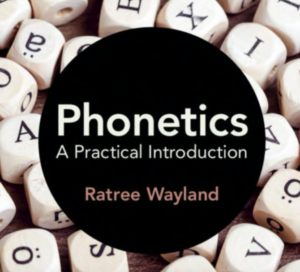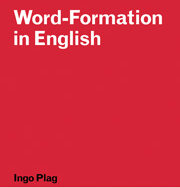The source of the Scottish English pronunciations you’ll see in Unilex (and so in the Speech Processing assignment)
Wayland (Phonetics) – Chapter 5 – Phonemic and Morphophonemic Analysis
An introduction to the concept of phonemes, allophones and some common phonological alternations.
Plag (2003) – Word formation in English: Chapter 1 Basic Concepts
An introductory text of word structure/morphology in English. Useful to read if you come from a non-linguistic background.
Taylor – Chapter 5 – Text decoding
Complementary to Jurafsky & Martin, Section 8.1.
Jurafsky & Martin (2nd ed) – Section 8.3 – Prosodic Analysis
Beyond getting the phones right, we also need to consider other aspects of speech such as intonation and pausing.
Taylor – Chapter 3 – The text-to-speech problem
Discusses the differences between spoken and written forms of language, and describes the structure of a typical TTS system.
Taylor – Chapter 8 – Pronunciation
Including how the lexicon is stored, letter-to-sound, and compressing the lexicon.
Taylor – Chapter 4 – Text Processing
Complementary to Jurafsky & Martin, Section 8.1.
Jurafsky & Martin (2nd ed) – Section 8.2 – Phonetic Analysis
Each word in the normalised text needs a pronunciation. Most words will be found in the dictionary, but for the remainder we must predict pronunciation from spelling.
Jurafsky & Martin (2nd ed) – Section 8.1 – Text Normalisation
We need to normalise the input text so that it contains a sequence of pronounceable words.



 This is the new version. Still under construction.
This is the new version. Still under construction.